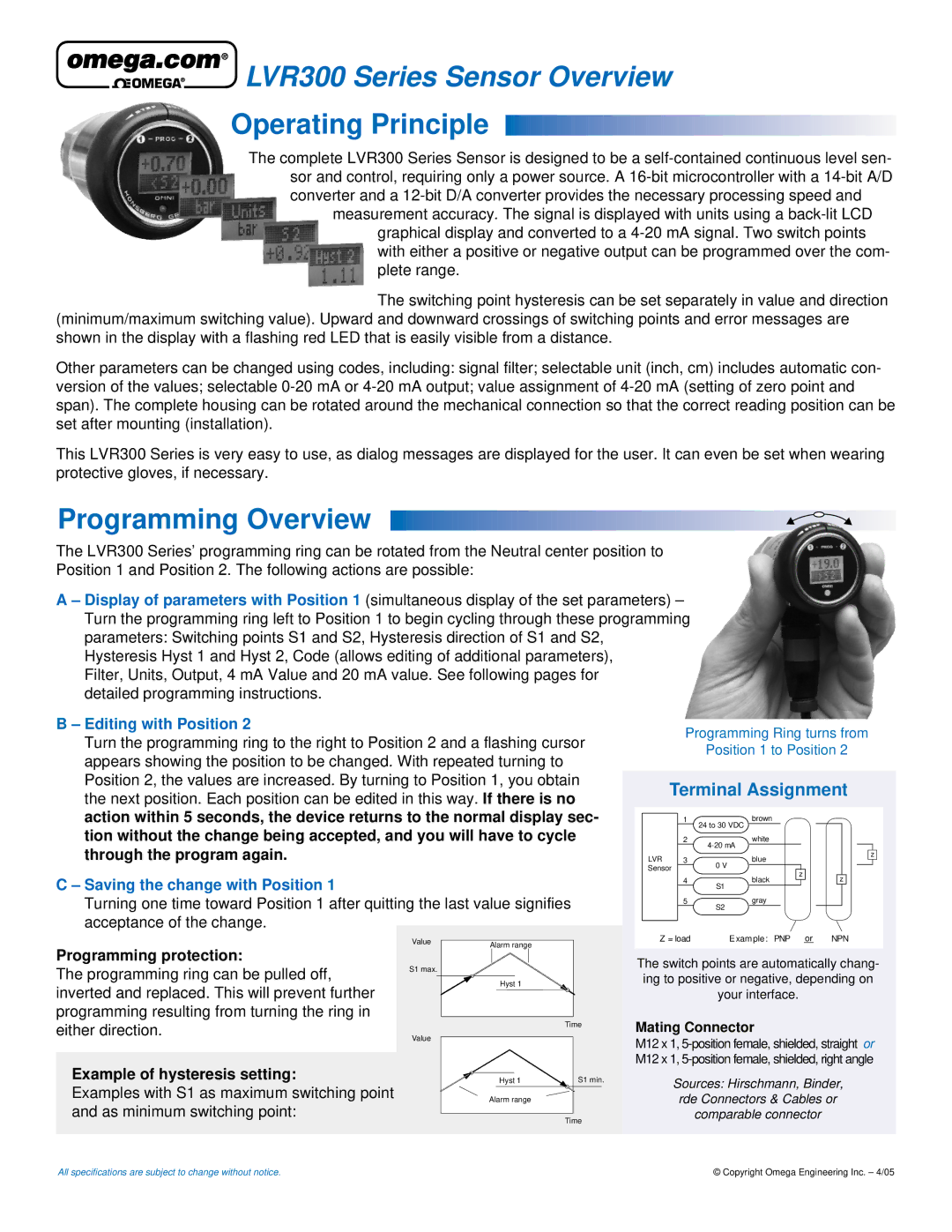
 LVR300 Series Sensor Overview
LVR300 Series Sensor Overview
Operating Principle
The complete LVR300 Series Sensor is designed to be a
measurement accuracy. The signal is displayed with units using a
The switching point hysteresis can be set separately in value and direction
(minimum/maximum switching value). Upward and downward crossings of switching points and error messages are shown in the display with a flashing red LED that is easily visible from a distance.
Other parameters can be changed using codes, including: signal filter; selectable unit (inch, cm) includes automatic con- version of the values; selectable
This LVR300 Series is very easy to use, as dialog messages are displayed for the user. It can even be set when wearing protective gloves, if necessary.
Programming Overview
The LVR300 Series’ programming ring can be rotated from the Neutral center position to
Position 1 and Position 2. The following actions are possible:
A – Display of parameters with Position 1 (simultaneous display of the set parameters) – Turn the programming ring left to Position 1 to begin cycling through these programming parameters: Switching points S1 and S2, Hysteresis direction of S1 and S2, Hysteresis Hyst 1 and Hyst 2, Code (allows editing of additional parameters),
Filter, Units, Output, 4 mA Value and 20 mA value. See following pages for detailed programming instructions.
B – Editing with Position 2
Turn the programming ring to the right to Position 2 and a flashing cursor appears showing the position to be changed. With repeated turning to Position 2, the values are increased. By turning to Position 1, you obtain the next position. Each position can be edited in this way. If there is no action within 5 seconds, the device returns to the normal display sec- tion without the change being accepted, and you will have to cycle through the program again.
C – Saving the change with Position 1
Turning one time toward Position 1 after quitting the last value signifies acceptance of the change.
Programming Ring turns from
Position 1 to Position 2
Terminal Assignment
1brown
24 to 30 VDC
2white
|
|
|
| |
LVR | 3 | blue |
| z |
|
| |||
Sensor |
| 0 V | z |
|
|
|
| ||
| 4 | black | z | |
|
| |||
|
| S1 |
|
|
5gray
S2
Programming protection:
The programming ring can be pulled off, inverted and replaced. This will prevent further programming resulting from turning the ring in either direction.
Example of hysteresis setting:
Examples with S1 as maximum switching point and as minimum switching point:
Value | Alarm range |
S1 max. |
|
| Hyst 1 |
| Time |
Value |
|
Hyst 1 | S1 min. |
Alarm range
Time
Z = load | Example: PNP or | NPN |
The switch points are automatically chang- ing to positive or negative, depending on your interface.
Mating Connector
M12 x 1,
Sources: Hirschmann, Binder, rde Connectors & Cables or comparable connector
All specifications are subject to change without notice. | © Copyright Omega Engineering Inc. – 4/05 |
